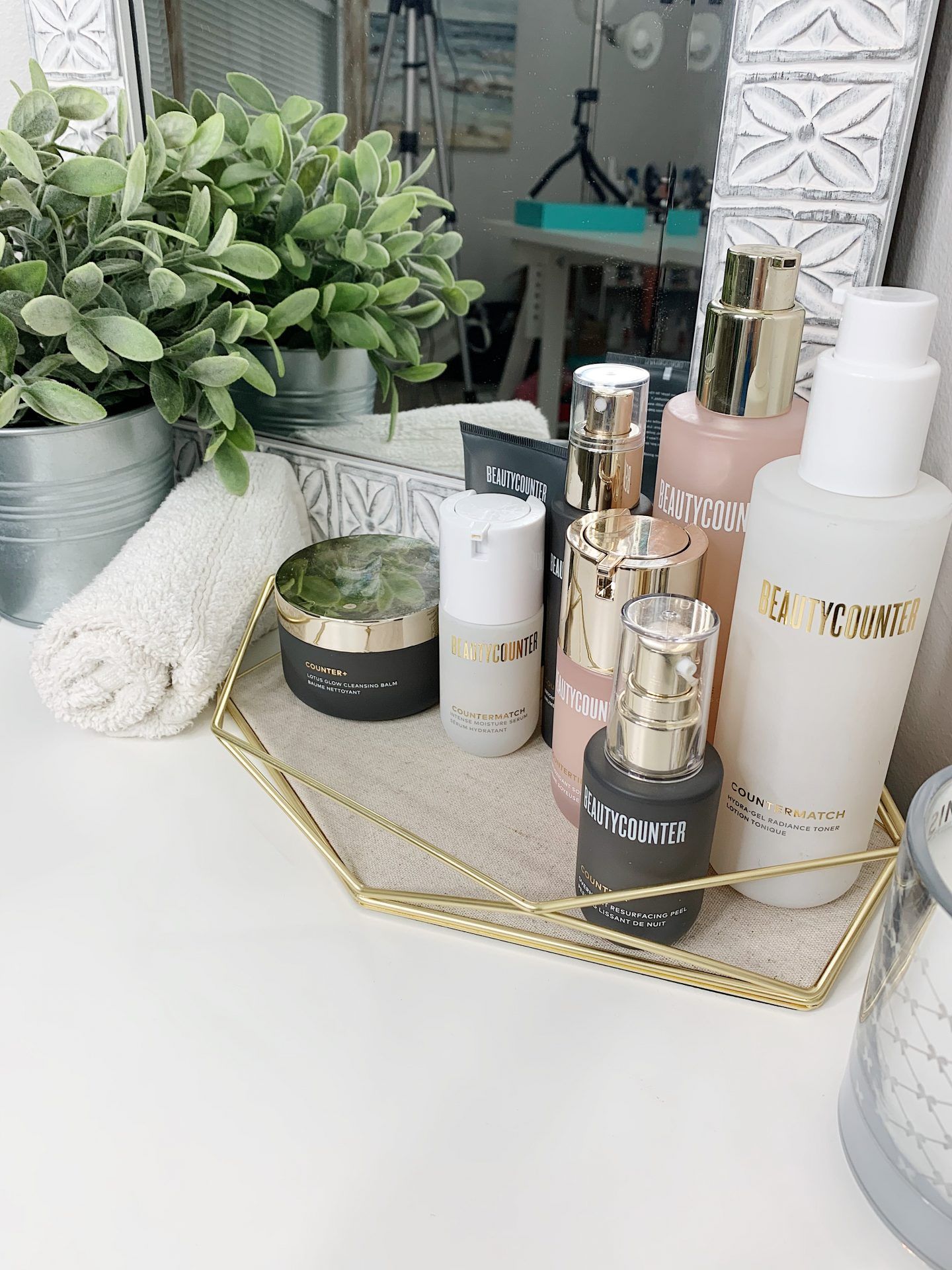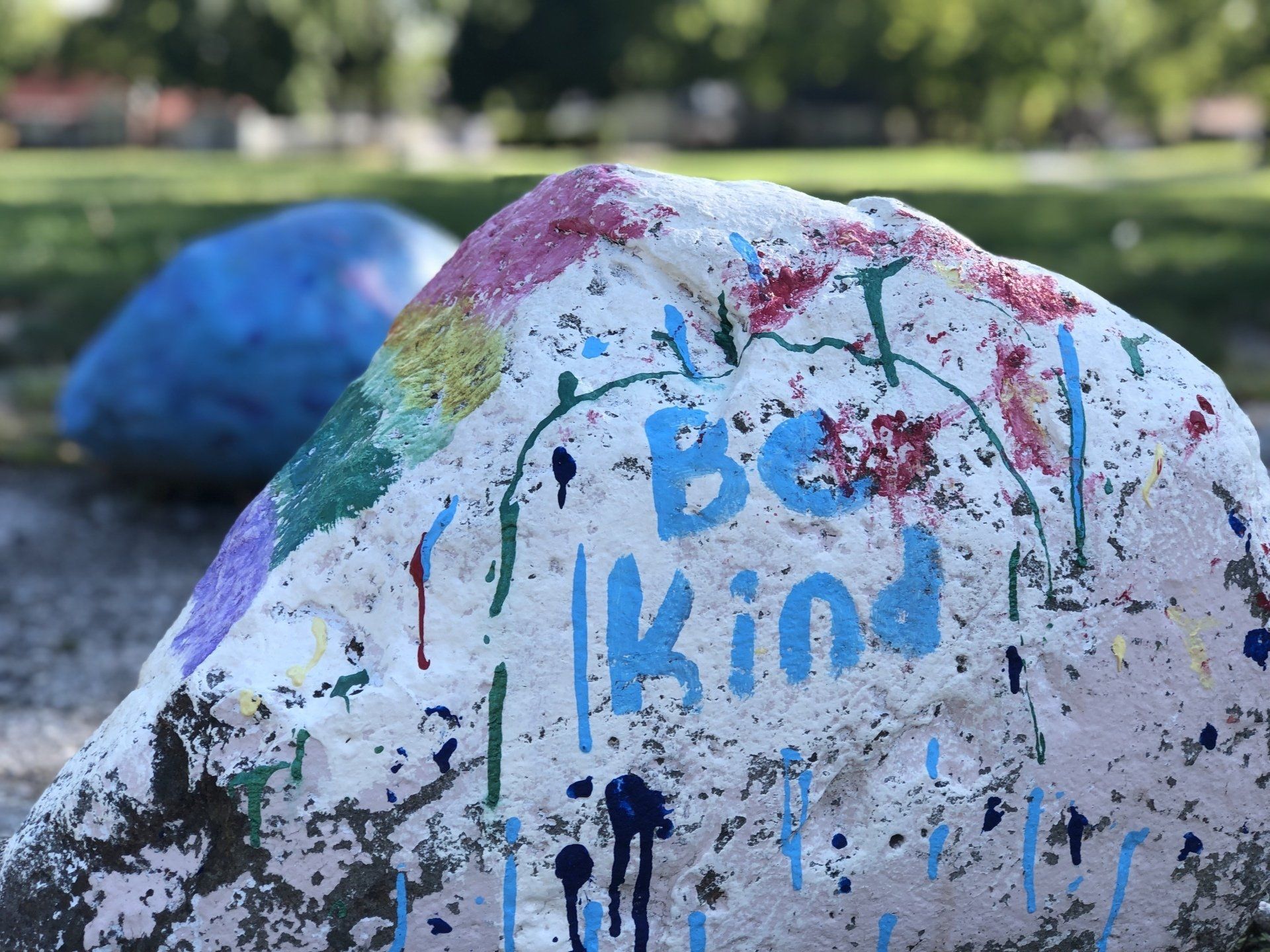I’m Afraid of Making it Worse: Talking to a loved one about Mental Health
Mental health can be a touchy subject. Stigma is very real. So, how can we fully support our loved ones if they are struggling?

My heart is so full after the outpouring of support I received for publicly sharing my mental health struggles in my blog last week. I am surrounded by the most generous and thoughtful people. I am so grateful.
I also received some messages from people checking in on me, which got me thinking…
What about the people who are silently struggling? Are we checking in with people in our lives enough in meaningful and thoughtful ways? Are we creating a safe space for our loved ones to talk about any fear or hopelessness they may be feeling?
Obviously, mental health can be a touchy subject. Stigma is very real, and I feel it almost every day. Heck - I was completely wrapped up in a shame storm last week after being so vulnerable through this new blog. As much as talking about my mental health struggles empowers me, I also feel the very real fear of being judged by others. I am only human after all.
The messages that lifted me up most were those thanking me for being open and honest. I don’t need or want pity. I’m not putting this out to the world for attention. In fact, I was most afraid of making people worry about me. As well-intentioned as the concern may be, I struggle with feeling weak, lazy and inadequate because of my depression and anxiety. It’s all a natural part of the disease that I work very hard to combat with the help of my therapist.
I have a very strong support system and a trusted circle of people I can turn to – and I frequently do. I also have weekly therapy sessions and access to a 24/7 on-call therapist available if needed.
I feel supported, but what truly concerns me is knowing there is a frightening number of people who do not have a support system to rely on. And perhaps worse than that, is the number of people who are afraid to talk about their mental health struggles at all.
What about when mental health starts to affect our daily responsibilities? I know how scary it is to talk to a supervisor or even co-workers about how my mental health is affecting me in a negative way. Contemplating taking a sick day even though I don’t have any physical ailments (aka – a mental health day) makes my anxiety flare up even more. And I worked for a mental health program! How ironic and contradictory, right?
My point is, I know how intimidating mental illness is to talk about even for someone who worked in the behavioral health field and so openly shares their mental health struggles. Imagine how scary it must be for someone who doesn’t broadcast it like I do. Stigma fuels this fear.
Stigma is defined as “a mark of shame or discredit.” Sometimes we feel stigma from external sources, other times we are self-inflicting stigma by harshly judging ourselves.
My therapist, Maria, asked me how I would respond to a friend if they talked about themselves the way I talk to myself in my head sometimes. I said I would be gentle and non-judgmental. I can be empathetic in that way because I personally struggle. For that reason, I can put myself in their shoes so-to-speak. It’s much more difficult to practice on my own thoughts. That’s’ why I rely on a support system.
However, not everyone can be empathetic or imagine themselves in another person’s situation, because not everyone has experienced depression and/or anxiety. And there is still plenty of misinformation about mental illness floating around that perpetuates judgement and stigma.
I’ll give a real-life example… My boyfriend does not struggle with mental illness. I’m so grateful that he doesn’t; however, it’s difficult that he can’t relate to what I’m going through. His lack of ability to truly understand my experience causes issues between us. But just because he’s never been through it does not mean he is incapable of being gentle, loving and sincere.
Because he has no personal frame of reference to what depression or anxiety feels like, he puts a lot of energy and time into trying to learn and understand. We talk openly and I do my best to be patient (sometimes I have to try REALLY hard).
In the past 5 years my boyfriend has become one of the most genuine and patient people in my circle. So much of it had to do with getting rid of stigmatic thinking and misconceptions about mental illness. I’m proud of him and love him so much for constantly working on himself as much as I’m working on me.
All that said, how can each of us create a safe space for people in our own lives to come to us, even if we don’t know exactly what they’re feeling.
Starting the conversation can be very difficult, but I believe if we make it more of our cultural norm to ask, “how are you doing mentally?” that it will and should become a regular part of conversation, just like: “how’s work?”, “how’s the family?”, or “any plans for the holidays?”
I know it can be nerve-wracking to talk to someone about a sensitive topic because we don’t want to say something that will make it worse. Here are some helpful tips on how to talk with someone who is struggling with depression or anxiety based on my own experience…
- Ask them what they need. Most often they will not know what they need but allowing them to have choices helps them feel in control. And I can say from experience that when I’m in a depressed state or experiencing high anxiety, the last thing I feel is control.
- Just listen. So often, all anyone needs is to say what they feel out loud in a judgement-free space. They may not want advice or someone to “fix” their problems for them. They just need to know they’re not alone.
- Remind them what they’re feeling is okay. Having anxiety or depression can make you think you’re crazy - among other negative self-thoughts (aka, shame thinking). A gentle reminder that it’s ok to feel X, Y, or Z will show them you are not judging them for what they’re going through.
- Gently let them know what they’re feeling is temporary. My boyfriend does this for me and in the moment, I struggle to believe him, but he is always right. He does not push it, but he does remind me it’s okay, I’m okay, and it’s going to be okay even though it doesn’t feel that way.
It’s also very important to take care of yourself as well. Loving someone who has mental health struggles can take a toll on your wellness. Practicing setting boundaries in a gentle and respectful way is important. You don’t always have to be available.
Also understand there is rarely a “prefect” thing to say in any given situation. Just be sure you’re coming from a genuine and heartfelt place of caring about that person.
Stigma comes from a lot of places – both inside and outside of us. Let’s all strive to be as educated and sincere about mental illness as possible. That’s the best we can do to eliminate harsh and unnecessary judgements that people experiencing mental illness face every day.










